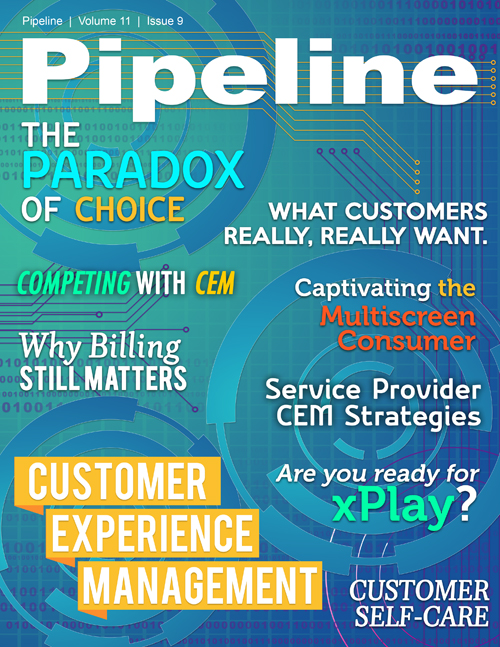Billing Still Matters: Driving Premium Customer Experiences through Intelligent Digital Services
By: Ian Roy

The proliferation and ever-expanding capabilities of smart devices are slowly but surely neutralizing traditional communications services, evident by the steady decline of voice and messaging revenues. This reality drives many to regard telco billing, which was specifically created to support these declining services, as a cost center to be optimized.
So does billing still matter? I believe the answer is a qualified “yes," provided billing quickly evolves to a higher state. This evolution is critical for billing to remain relevant and, more importantly, provide an opportunity for service providers themselves to remain relevant. As our connected world shifts away from network-based services to IP everything, everyone along the communications and media value chain is racing to establish dominant positions in the new order. For service providers, the goal must be to stake claim to being Digital Services Providers (DSPs). Becoming a successful DSP will require those providers to deliver a premium customer experience at a competitive price for on-the-go, content-hungry customers. This is where Intelligent Billing comes into play, allowing the DSP to ensure that the multi-device user is aware of the various media-rich service offerings and price options available.
How can a DSP compete against leading device-makers unveiling breath-taking features and agile app developers creating the latest cool must-haves? Clearly the first place for service providers to look for a sustainable advantage is from their ongoing relationships and frequent interactions with users. The potential for intimacy must be realized and reinforced at every turn to establish a valid claim for prime real estate along the digital services value chain. In this effort, intelligent billing provides a powerful tool to enhance and spotlight the DSP’s value-add in contributing to an exceptional Digital Lifestyle experience
For more than a century, the gold standard in billing has been measured by completeness and accuracy, ensuring that every billable network event is captured, then billed to the responsible party using the appropriate tariff. It’s an admirable goal, but one that, at best, can lead to a dispassionate reaction from customers. At worst, billing errors create unhappy subscribers (and/or represent missed revenues). Until recently, service providers could not count on billing to result in delighted customers.
The old paradigm just doesn’t work for a DSP who needs "intelligent" billing, while still complete and accurate, but is so much more. To be considered intelligent, the billing system must create and communicate value to the end user, allowing service providers to elevate their status from commodity connectivity provider to a "real" DSP that commands a premium.
The defining capability of intelligent billing is real-time awareness. This means that, beyond simply capturing and processing, the billing system must recognize the inherent significance of the events it processes. Infused with powerful in-line analytics, intelligent billing can support the discovery of additional offerings and services that would complement the user’s experience. The process might be as simple as the age-old peddler’s trick, turned into an art form by Amazon, of identifying additional purchases made by comparable customers in similar circumstances. But the potential of intelligent billing extends much further, because the billing system has full knowledge of connected and historical information that can infer greater insights that can, in turn, deliver additional value to customers.





















